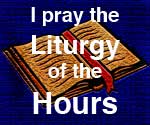I had some help from a
friend, but I wanted to discuss my old Protestant denomination, the Church of Christ, and their misunderstanding of Original Sin. I also held to many of these beliefs in the past, but while reviewing old study material that I had written and written by other preachers in the Church of Christ, the error of these teachings seemed so evident.
1) In all but one of every sermon I have ever heard, Church of Christers have attempted to lay the doctrine of original sin at the feet of John Calvin. They even go as far as to say that Catholics adopted his theories and thus "created the idea of the immaculate conception". This gives them a very easy cop-out because they don't have to spend as much time on the actual issue of original sin, but blend it with his false TULIP teachings (many of which are obviously fallacious.) Then, by poking holes in the rest of his theory they can easily convince you later that original sin is incorrect. Obviously, this flows well with them because they ignore the 1500 years of early Church history where it was discussed by the Church fathers. One sermon did note, correctly, that there was some opposition to St. Augustine (who taught on original sin). They chose this individual as representing the Church of Christ position in the early centuries. His name? Pelagius!!!!!!!!!!!!!!!!!!!! Hopefully they will learn more about that individual and distance themselves from him.
2) Along the same vein, they misunderstand the difference between Calvanistic original sin and original sin as taught by the Bible/early Church fathers. While Calvin believes in "total hereditary depravity" whereby someone cannot accomplish a true good thing because of their original sin (good deeds seen as evil in God's eyes), the Catholic Church has a much better understanding of the truth. Thus, arguing against Calvin, and attributing his thought to the development of Catholic theology is ludicrous.
3) They often pivot the conversation on whether or not you think God would damn an infant to hell, sometimes quoting (misquoting also) Catholic theologians. This obviously represents their misunderstanding of what is considered Sacred Tradition. At the same time, they would like to avoid talking about the theoretical man in Africa who has never received the gospel or the man who dies on his way to be baptized. They obviously also think every human being in the civilized world has been exposed to the Church of Christ doctrine. I wonder what they thought of the Peruvian tribe they found in the jungle recently who had never had human contact.
4) Their proof text is
EZEKIEL 18:20:
"The soul that sinneth, it shall die. The son shall not bear the
iniquity of the father, neither shall the father bear the iniquity of the son: the
righteousness of the righteous shall be upon him, and the wickedness of the
wicked shall be upon him."Here, they ignore the difference between original sin and willful sin. Thus, not understanding that being born with a predisposition to sin is different from being born with personal sin. They illustrate this by pointing to the Biblical definition of sin, transgressing God's law. I think this one is basically just their misconception of the whole idea.
5) I think this is odd, and I'm not sure I can explain it properly, but in some sense they do believe in Original Sin to a certain degree. They argue that we have death, sickness, tragedy on earth, hardships, pain, etc. as a result of Adam's original sin. They understand this much, and that should go along with their misunderstanding of Ezekiel, that babies do die and get sick, thus in some sense they bear the consequences of that sin. That is a result of original sin. It is not the same as being punished through hell or through being thrown in prison for something your father did.


